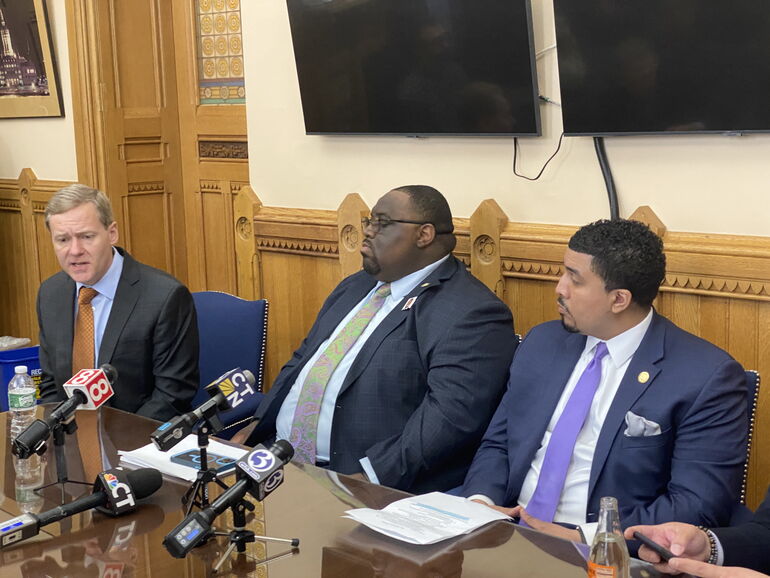Processing Your Payment
Please do not leave this page until complete. This can take a few moments.
-
News
-
Editions
-
- Lists
-
Viewpoints
-
HBJ Events
-
Event Info
- 2024 Economic Outlook Webinar Presented by: NBT Bank
- Best Places to Work in Connecticut 2024
- Top 25 Women In Business Awards 2024
- Connecticut's Family Business Awards 2024
- What's Your Story? A Small Business Giveaway 2024 Presented By: Torrington Savings Bank
- 40 Under Forty Awards 2024
- C-Suite and Lifetime Achievement Awards 2024
- Connecticut's Health Care Heroes Awards 2024
-
-
Business Calendar
-
Custom Content
- News
-
Editions
View Digital Editions
Biweekly Issues
- April 29, 2024
- April 15, 2024
- April 1, 2024
- March 18, 2024
- March 4, 2024
- February 19, 2024
- February 5, 2024
- January 22, 2024
- January 8, 2024
- + More
Special Editions
- Lists
- Viewpoints
-
HBJ Events
Event Info
- View all Events
- 2024 Economic Outlook Webinar Presented by: NBT Bank
- Best Places to Work in Connecticut 2024
- Top 25 Women In Business Awards 2024
- Connecticut's Family Business Awards 2024
- What's Your Story? A Small Business Giveaway 2024 Presented By: Torrington Savings Bank
- 40 Under Forty Awards 2024
- C-Suite and Lifetime Achievement Awards 2024
- Connecticut's Health Care Heroes Awards 2024
Award Honorees
- Business Calendar
- Custom Content
House Dems say they have votes to pass modified paid sick leave expansion; Senate expected to vote on AI regulations
 HBJ Photo | Skyler Frazer
State Rep. Matt Ritter speaks during a press conference about a proposal to expand paid leave in the state.
HBJ Photo | Skyler Frazer
State Rep. Matt Ritter speaks during a press conference about a proposal to expand paid leave in the state.
House Democrats say they have the votes to pass a paid sick leave expansion bill after negotiating some changes that would phase-in the proposal over several years.
House Bill 5005, which was introduced in the Labor and Public Employees Committee earlier this year and modified on the House floor Wednesday morning, would expand the state’s paid sick leave laws to include just about all private-sector workers in the state, meaning all employers would have to give their employees 40 hours of leave a year.
Certain union construction workers and their employers would be exempt from the requirement.
Currently, the state’s paid sick leave program only applies to companies with more than 50 workers. State Rep. Manny Sanchez (D-New Britain) said he doesn’t view the proposal as another state mandate.
“I think everybody deserves paid sick time off,” Sanchez said Wednesday.
Sanchez said that after talking with other legislators and stakeholders, House Democrats changed the proposal to gradually phase it in: it would impact employers with at least 25 employees in 2025; those with at least 11 employees in 2026; and then those with at least one employee in 2027.
The revised proposal would also create a working group to study tax credits for small businesses impacted by the expansion. It would also require employees to work 120 calendar days before being eligible for the time off.
The revised bill also removes the requirement for a doctor’s note to take the time off, and eliminates language that would have prohibited employers from requiring employees taking paid sick leave to look for, or find a replacement to cover their scheduled hours.
“We understood that we needed to phase this in and that we needed to create a study group to essentially figure out if there are ways that we need to help our smallest businesses,” Sanchez said.
House Speaker Matt Ritter (D-Hartford) said the bill won’t impact employers that already offer 40 hours of paid sick leave.
Republicans pushed back against the proposal, with state Rep. Vincent Candelora (R-North Branford) calling it “a benefit that businesses can’t afford to pay.”
“It is micro-managing businesses — not only do you have to give this benefit, but you have to give it in a certain way. You can’t ask people why they’re taking the time off, they’re just entitled to take it, you have to accrue it a certain way, … it’s unworkable,” Candelora said.
Candelora said he doesn’t expect to offer any amendments to the Democrats’ bill because “we think the whole policy is broken.”
AI bill
Also up for a vote Wednesday is Senate Bill 2, a multi-part proposal that would implement several artificial intelligence-related regulations while also ramping up investment in artificial intelligence education and workforce training.
The bill was first introduced this session by the General Law Committee and a revised version passed out of the Judiciary Committee earlier this week. State Sen. James Maroney (D-Milford) said the core changes in the bill include the removal of “Section 4,” which was the most controversial part of the proposal for technology businesses.
Section 4 would require businesses that create general-purpose AI, or programs that can perform a wide range of intellectual tasks that can mirror humans such as audio or video generation or image and speech recognition services, to disclose a plethora of information about their technology and be subject to annual review.
Maroney said earlier this week the plan is to create a task force regarding language in Section 4 and act on the recommendations in a future session.
Gov. Ned Lamont has expressed skepticism about passing AI legislation right now at the state level, but Democratic Senate leadership said it's their job to push for legislation they believe in.
“I think that this is a very important bill for the state of Connecticut, it’s very important I think also for the country as a first step to get a bill like this, even if it were not to get passed into law this year,” Maroney said.

2022 Giving Guide
This special edition informs and connects businesses with nonprofit organizations that are aligned with what they care about. Each nonprofit profile provides a crisp snapshot of the organization’s mission, goals, area of service, giving and volunteer opportunities and board leadership.
Learn more
Subscribe
Hartford Business Journal provides the top coverage of news, trends, data, politics and personalities of the area’s business community. Get the news and information you need from the award-winning writers at HBJ. Don’t miss out - subscribe today.
Subscribe
2024 Book of Lists
Delivering Vital Marketplace Content and Context to Senior Decision Makers Throughout Greater Hartford and the State ... All Year Long!
Read Here-
2022 Giving Guide
This special edition informs and connects businesses with nonprofit organizations that are aligned with what they care about. Each nonprofit profile provides a crisp snapshot of the organization’s mission, goals, area of service, giving and volunteer opportunities and board leadership.
-
Subscribe
Hartford Business Journal provides the top coverage of news, trends, data, politics and personalities of the area’s business community. Get the news and information you need from the award-winning writers at HBJ. Don’t miss out - subscribe today.
-
2024 Book of Lists
Delivering Vital Marketplace Content and Context to Senior Decision Makers Throughout Greater Hartford and the State ... All Year Long!
ABOUT
ADVERTISE
NEW ENGLAND BUSINESS MEDIA SITES
No articles left
Get access now
In order to use this feature, we need some information from you. You can also login or register for a free account.
By clicking submit you are agreeing to our cookie usage and Privacy Policy
Already have an account? Login
Already have an account? Login
Want to create an account? Register
Get access now
In order to use this feature, we need some information from you. You can also login or register for a free account.
By clicking submit you are agreeing to our cookie usage and Privacy Policy
Already have an account? Login
Already have an account? Login
Want to create an account? Register






0 Comments